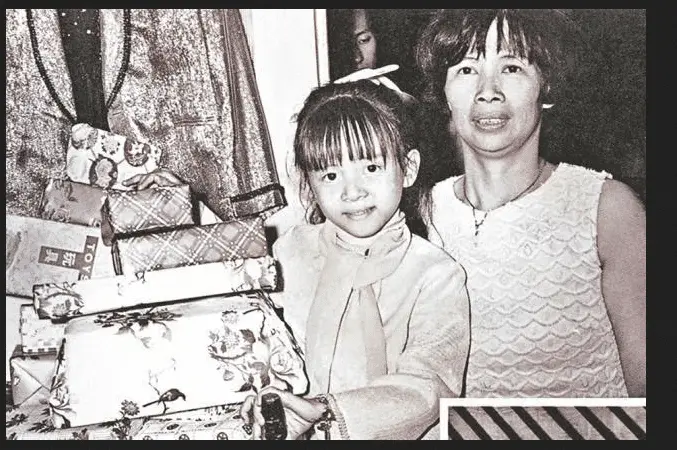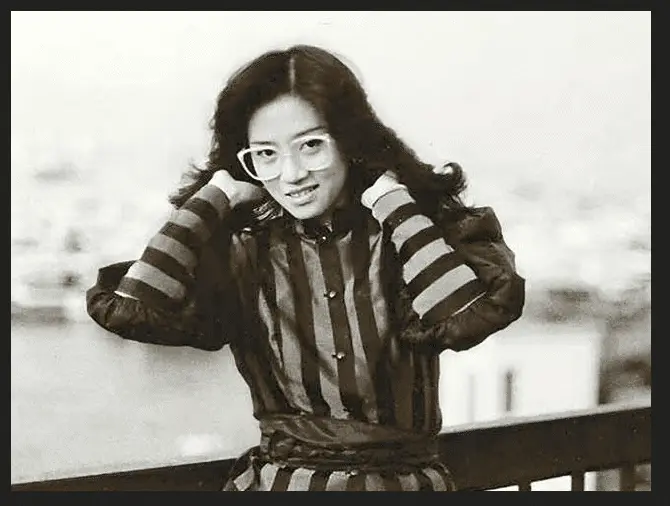Table of Contents
Anita MuiNot only did he conquer the Chinese-speaking world with his singing and acting skills, his accurate vision for real estate investment during his lifetime also became a classic case in the Hong Kong entertainment and business circles. Eighteen years after her death, the luxury property transactions and family inheritance turmoil she left behind still reflect the volatile Hong Kong real estate market and the complexity of the feuds among wealthy families.
From stage to real estate: Anita Mui's double life
There is no need to elaborate on Anita Mui's acting career - she debuted on stage at the age of four, won the rookie championship with "Season of Wind" at the age of nineteen, and started her brilliant career as the "ever-changing queen". However, what is little known is that this superstar who shines brightly on the stage is actually a low-key real estate investment expert in private. The 1980s and 1990s were the period of Hong Kong's economic boom, and the property market became a golden track for wealth appreciation. At the peak of her career, Anita Mui invested a large amount of her income in luxury properties, the most iconic of which is No. 8 Shoushan Village Road, Southern District.Heng On CourtDuplex unit.
In 1993, Anita Mui purchased this 4,069-square-foot luxury home for HK$20 million through her company, with a price of only HK$4,915 per square foot. At that time, Hong Kong's luxury housing market had not yet experienced the surge before its return, and the Southern District, as a traditional wealthy area, had already revealed its scarce value. Choosing to hold properties through a company not only complies with the tax planning strategy that was common among high-income earners at the time, but also leaves room for flexibility in future asset disposal. This investment delivered amazing returns 20 years later: in 2013, the estate administrator sold it to the Kwok family of Sun Hung Kai Properties for HK$147 million. The price per square foot soared to HK$36,127, an increase of more than seven times, far exceeding the average performance of the Hong Kong property market during the same period.

Heng An Ge acquisition battle: the strategic layout of real estate giants
The transaction of Heng On Court is not only an important node in the disposal of Anita Mui's estate, but also a key battle in Sun Hung Kai Properties' six-year acquisition plan. This single-building residence, completed in 1982, has only 12 units with an area ranging from 3,341 to 4,075 square feet. It is a rare low-density luxury residence in the southern part of Hong Kong Island. The Guo family started acquiring ownership rights in 2007 with the aim of integrating the land for reconstruction and development. However, the acquisition process was once stuck as some owners were reluctant to sell.
The change of ownership of Anita Mui's unit became the key to breaking the deadlock. In 2013, the estate administrator released the property for HK$147 million. Sun Hung Kai Properties decisively took over and eventually successfully unified the ownership. Based on the acquisition cost, the price per square foot of the unit has reached HK$36,127, an appreciation of HK$6,35% compared to 1993. This not only reflects the appreciation potential of the top luxury sector in the Southern District, but also reveals the valuation logic of developers for scarce locations - compared to retail investors who value the value of existing properties more, consortiums are more willing to pay a premium for future development potential.
It is interesting to note that No. 9-19 Shoushan Village Road, which is just across the street from Heng On Court, is the top-level villa project SHOUSON PEAK built by Sun Hung Kai. When the project was launched in 2009, the highest transaction price per square foot was HK$100,000, setting a record for strata residential properties in Asia at the time. Industry analysts believe that the unification of the ownership of Heng On Court may lay the groundwork for Sun Hung Kai Properties to integrate surrounding plots of land and expand its high-end product line in the future, demonstrating the real estate tycoon's long-term planning thinking.
Inheritance Storm: Family Disputes Behind Sky-High-Price Litigation
The management of Anita Mui's estate can be regarded as a classic example of celebrity estate cases in Hong Kong. According to media reports, the total value of his estate is approximately HK$170 million, including cash and multiple properties. However, due to the long-term litigation by Mei's mother, Tam Mei-kam, demanding the redistribution of the estate, as of 2013, the estate management fees and litigation expenses had exceeded HK$100 million, forcing the estate administrator to sell off the assets.
The most controversial issue is the disposal of the former residence of Heng'an Pavilion. Anita Mui's will clearly stipulated that she would pay her mother HK$70,000 a month for living expenses, and give two properties to her good friend Liu Peiji. The rest of her property would be donated to the Buddhist Association after her mother's death. However, Tan Mei-kam has filed several lawsuits since 2004, challenging the validity of the will and even demanding the entire HK$71 million estate in one lump sum. This marathon lawsuit was incredibly expensive, and ultimately most of the proceeds from the sale of Heng'an Pavilion were used to pay the accumulated legal fees, creating a paradoxical situation of "selling the building to support the lawsuit."
Legal experts pointed out that this case exposed the real dilemma of Hong Kong's inheritance law system: even if a will is notarized, if the heirs continue to file lawsuits, the estate may still be significantly reduced during the management process. Anita Mui's inheritance dispute has thus become a classic case, prompting more high-net-worth individuals to adopt tools such as family trusts to plan their wealth inheritance.

Happy Valley’s Yushou Building: The ups and downs of the heritage auction market
removeHeng On CourtIn addition, the top floor unit of Yuxiu Building in Happy Valley, which is part of Anita Mui’s legacy, is also full of drama. This two-bedroom unit with a usable area of 471 square feet comes with a 440-square-foot rooftop and a parking space. When it was first auctioned in August 2012, although the bid increased from HK$7.8 million to HK$10.4 million, it still failed to sell because it did not reach the reserve price. A month later, it was sold for HK$9.8 million, with a price of HK$20,807 per square foot, which was approximately HK$151,100 higher than the average second-hand price in the same district at that time.
The transaction reflects the special nature of heritage property auctions. On the one hand, auction houses need to balance the interests of estate beneficiaries and market acceptance when setting reserve prices; on the other hand, buyers often view estate properties as "good bargains" and hope to purchase them at prices below the market price. The first sale of Yuxiu Building failed, which showed the gap between market expectations and the second sale, which was sold at a price reduction of HK$600,000, reflecting the compromise of the estate administrator in the face of litigation funding pressure.
It is worth noting that the unit was sold with a lease, with a monthly rent of approximately HK$18,000 and a rental return rate of approximately 2.2%, which is lower than the Hong Kong average. This may explain why its premium space is limited, and also reflects the dilemma between "quick realization" and "maximum value" in estate disposal.

Social enlightenment from superstar legacy
Anita Mui's real estate story is actually a microcosm of Hong Kong's economic and social changes. From 1993 to 2013, the price fluctuations of its Heng On Court units coincided with the major cycles of the Hong Kong property market: the withdrawal of foreign capital before the return of Hong Kong to China in 1997 led to a brief correction in housing prices; after the SARS outbreak in 2003, housing prices rebounded due to the free travel policy; and after the financial crisis in 2008, housing prices hit new highs driven by global quantitative easing. The appreciation trajectory of this luxury home has witnessed the process of Hong Kong's transformation from a manufacturing center to an international financial hub.
The dilemma of estate management reveals the complexity of wealth inheritance. Anita Mui was only 40 years old when she made her will. Although she had considered her mother's livelihood, she did not foresee the litigation that would last for more than a decade. This reminds high net worth individuals that estate planning needs to have legal foresight and, when necessary, a professional trust structure should be introduced to avoid "good intentions leading to family disputes."
Anita Mui(English: Anita Mui Yim-fong; October 10, 1963 - December 30, 2003),HongkongA female singer, actress, and social activist, she is known as the "Big Sister of the Music Industry." She has a variety of images and has won numerous awards.Cantonese pop musicAn iconic figure during the heyday of Hong Kong's glory days, she is also the first female artist in the Hong Kong entertainment industry to win both the "Queen of Singing" and "Queen of Film" titles. Anita Mui's songs were glamorous and avant-garde, her stage costumes were gorgeous and bold, and her style was ever-changing. She was known as "The Queen of Changeand AsiaMadonna". Outside the entertainment industry, Anita Mui had a rough childhood and was sent toLiyuanSinging, but still put aside past grudges and devoted himself to supporting his mother.Senior Citizen Home Safety AssociationHe is regarded as a role model of filial piety by organizations such as China University of Political Science and Law.
Further reading:




